Learning Event - Bio-Circular Food Chains and E-Mobility in Kenya
November 11, 2023: NCN hosted a learning event focusing on E-mobility and Bio Circular Food Chains. The event was co-hosted by BasiGo and INSECTIPRO, two of the most innovative climate startups in the country, and was a fun and informative day out for 35 lucky NCN members!

BasiGo

The day began with members riding on BasiGo’s first model bus, driven by their very first e-mobility driver in Kenya, Simon Mathenge, as they journeyed to INSECTIPRO facilities in Tigoni.
The primary mission of BasiGo is to eliminate diesel vehicles from the roads, which contribute to 61% of nitrogen oxides, 39% of fine particulate matter, and 20% of carbon dioxide emissions in Kenya (ScienceDirect 2023). During the ride, Philip Gorman, Head of Charging Infrastructure at BasiGo, highlighted that Kenya is well positioned for the e-mobility industry because it has one of the cleanest electric grids. More than 90% of the electricity comes from renewable sources, mainly geothermal (EIU 2023).
Philip explained that investing in one electric bus in Kenya to replace a diesel bus reduces daily emissions by 7 kgs of toxic air pollutants such as unburned fuel, carbon monoxide, nitrogen oxides, and particulates such as PM2.5, and offsets 50 tonnes of CO2 emissions per year, therefore delivering significant positive impact in terms of air quality and climate change mitigation.
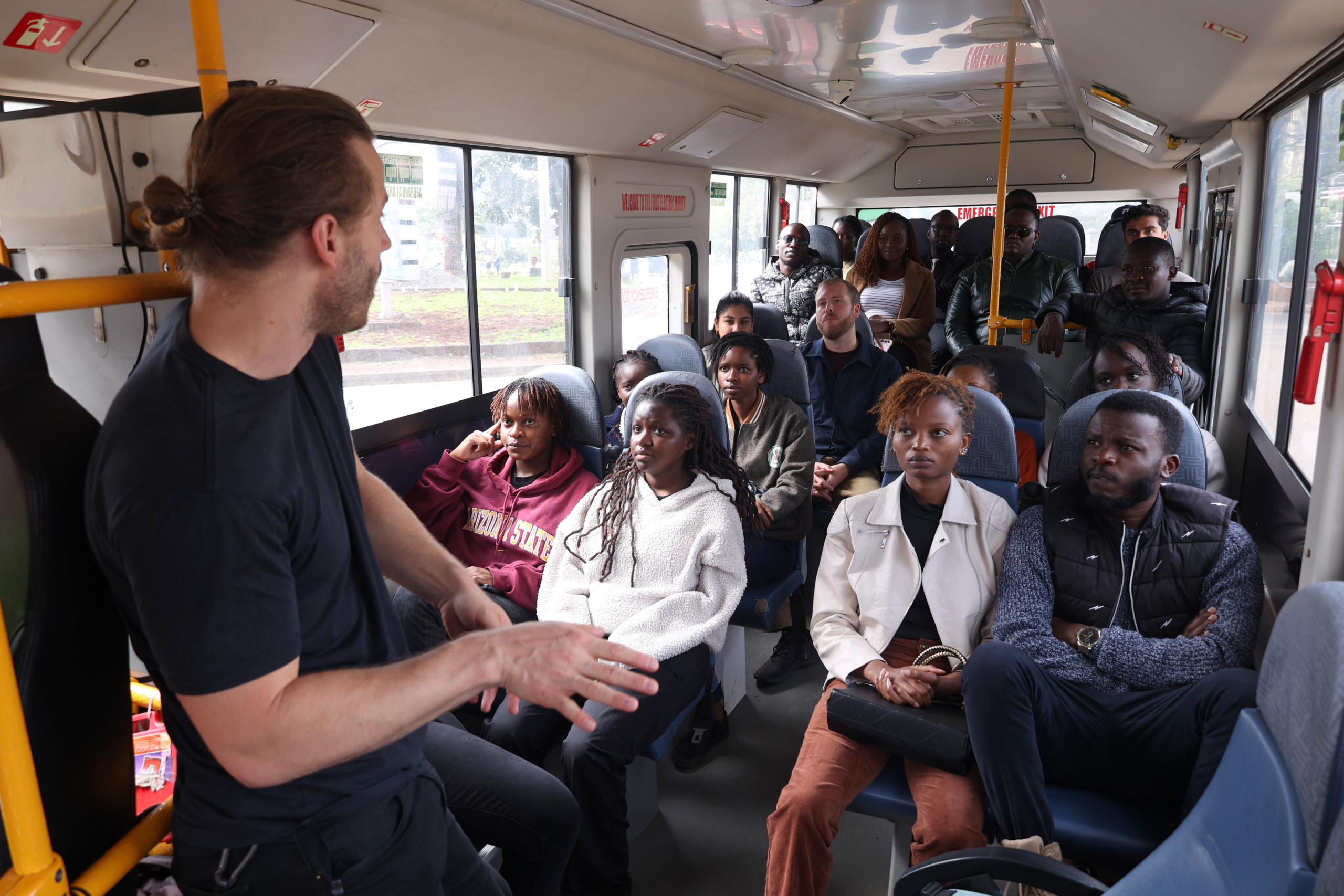
The operational cost of an electric bus. is 33% lower compared to a diesel bus, as electricity is cheaper than fuel, and maintenance requirements are less (BasiGo, 2023). Philip shared that the primary challenge lies in the upfront cost: presently an electric bus may cost more than twice as much as a diesel equivalent. BASI-GO addresses this challenge with a mix of innovative financing and support networks for bus owners.
BasiGo aims to have 1,000 electric buses on Kenyan roads by 2025, and we wish them all the best!
INSECTIPRO
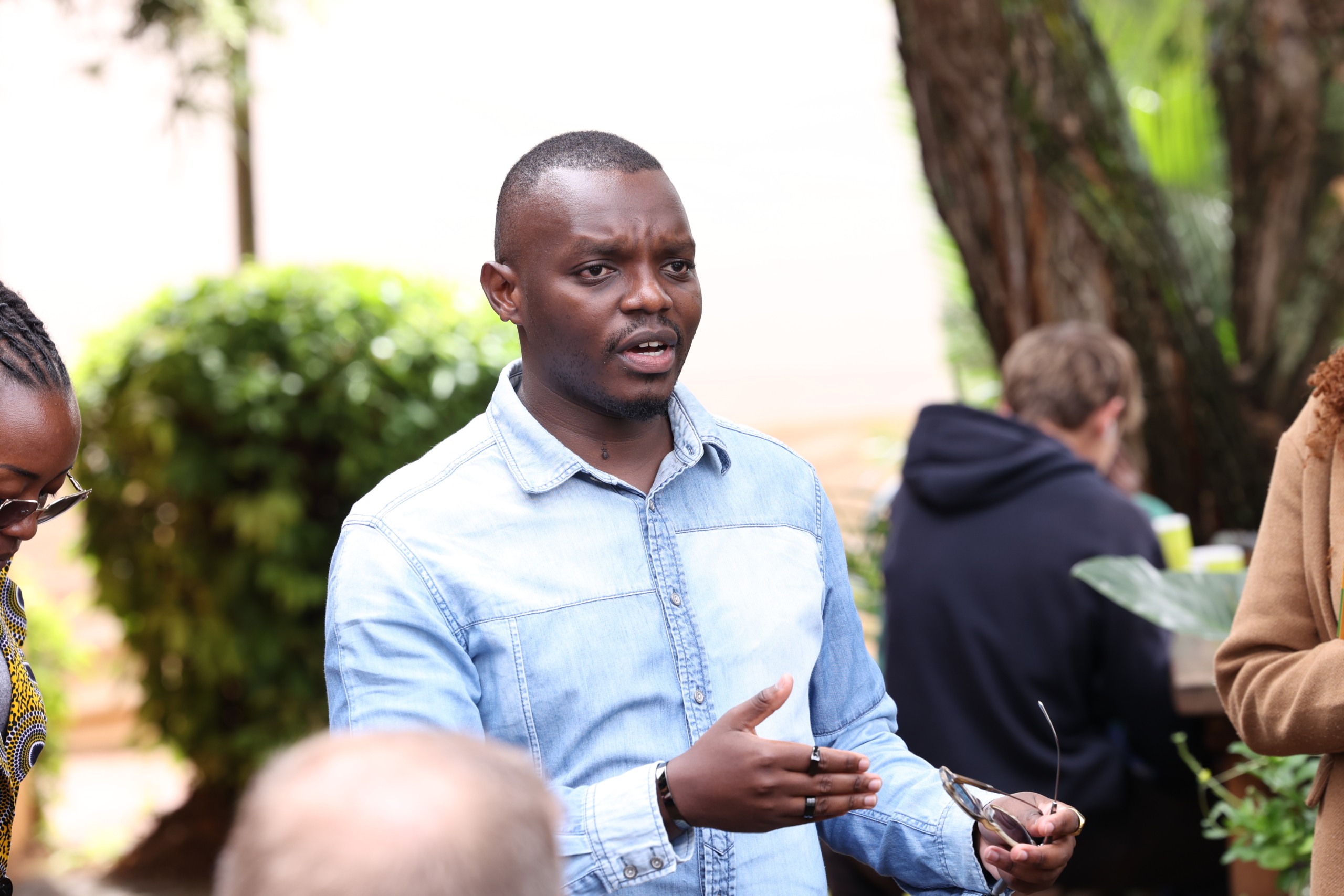
Upon arriving in Tigoni, Maurice Kimani, Chief Financial Officer at INSECTIPRO, took over the tour. He explained that the company originated from the need for an alternative feed protein to the largely imported soybean and fish meal. Proteins are crucial for meeting up to 60% of livestock production needs (INSECTIPRO 2023). INSECTIPRO constructed greenhouses and a climate facility to provide the ideal conditions for insect rearing. Currently, they are focused on cultivating insect-based products for food, feed, and organic fertiliser. They are presently rearing 8 billion insects, including Black Soldier Fly and Crickets, with plans to introduce mealworms soon, he shared.
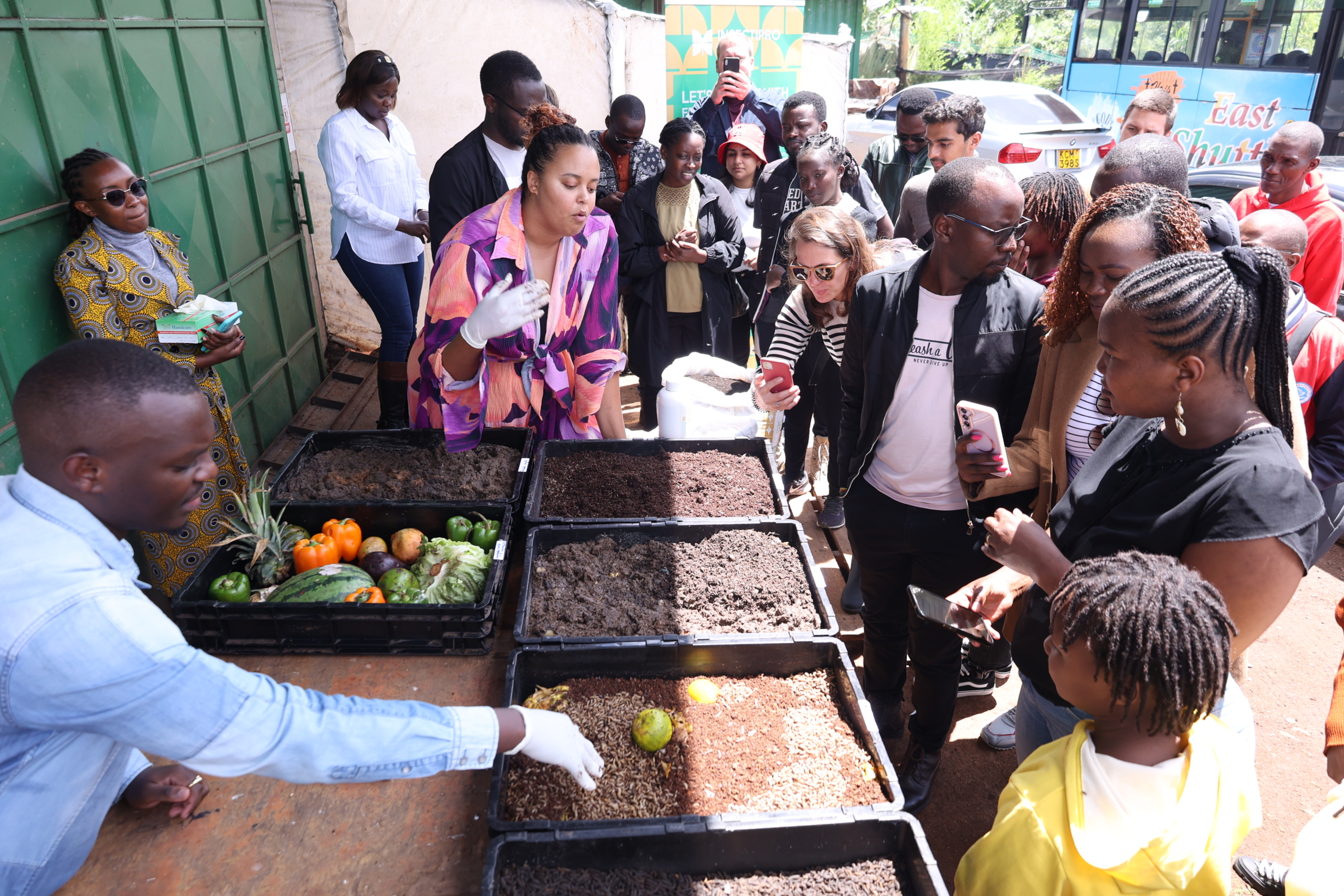
Talash Huijbers, the CEO of INSECTIPRO, unveiled the company’s efficient waste upcycling operations, processing 100 to 150 metric tons of organic waste daily across all sites. This constitutes close to 2% of Nairobi’s total organic waste. The waste undergoes a transformation into mash, serving as both a growing medium and food source for Black Soldier Fly (BSF) larvae. After 10 days, 90% of the larvae, rich in desired protein content, are harvested for processing, while the remaining 10% mature into insects for repopulation. During harvesting, insect fecal matter is separated, composted, and packaged as organic fertilizer. INSECTIPRO’s future plans include constructing one of Africa’s largest BSF facilities in Thika, set to upcycle up to a thousand metric tons of waste daily!
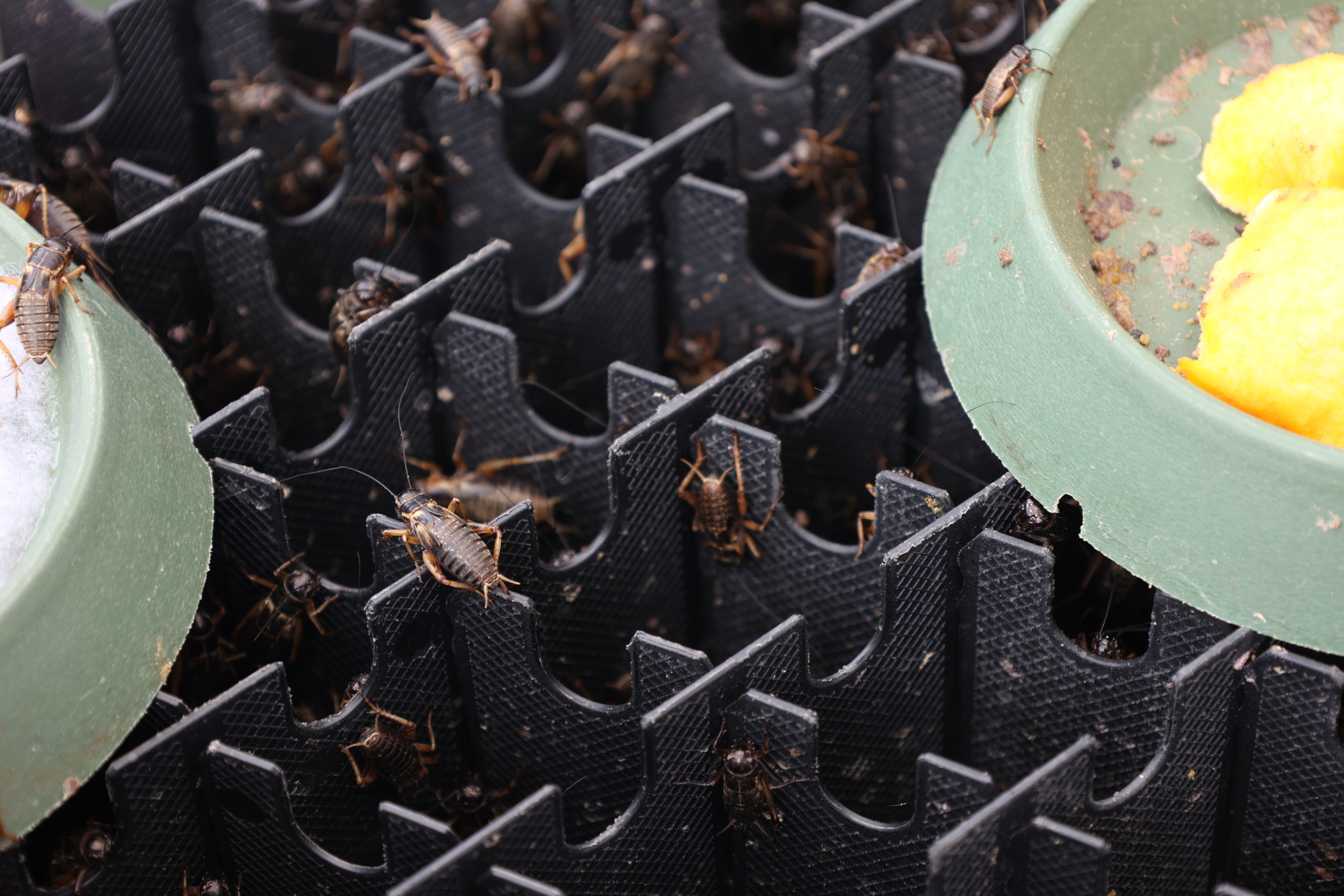
In addition to their innovative waste upcycling for BSF farming, INSECTIPRO has delved into cricket farming for human consumption. Maurice Kimani explained the process, from cricket eggs hatching to pre-adult crickets being harvested after 6 weeks. As a value addition, INSECTIPRO transforms them into Cricket’s Chirrups, a cricket snack available in three flavors, and Get Protein Powder, a cricket-based protein powder for various meals including, porridge, and pastries. The porridge, currently being tested in school feeding programs in Western Kenya, shows promising results in improving children’s red blood cell markers, and brain development, and reducing stunting (INSECTIPRO 2023).
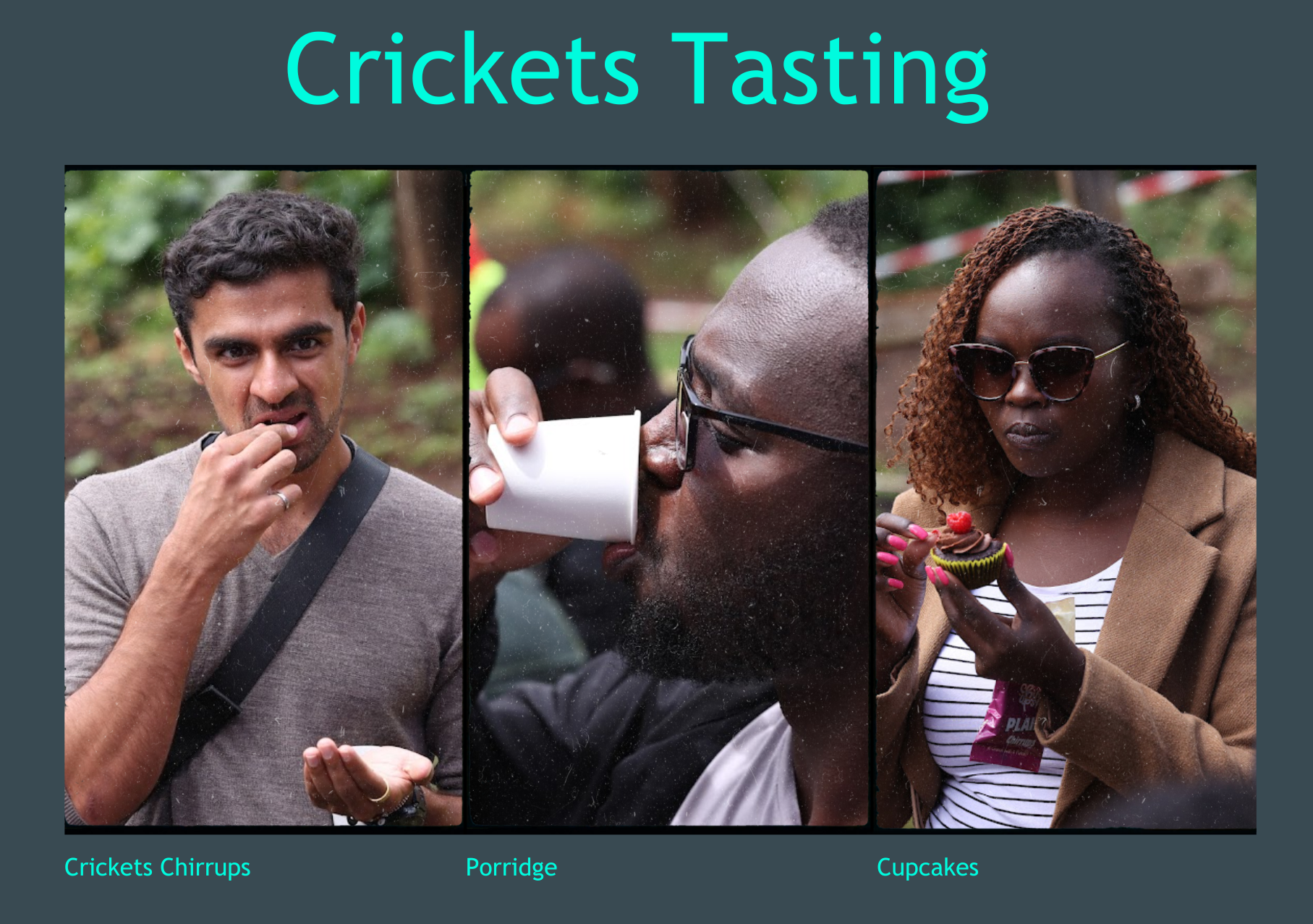
Our bravest members decided to try out these new foods, they got to taste cricket chirrups, porridge, and cupcakes while learning about the process of cricket farming.
The learning event wrapped up with a Q&A session between our members and facilitators.
Thanks to BASI-GO and INSECTIPRO for their collaboration on this very interactive event, and a shout-out to the NCN members who joined us!


Join our network
Our network grants you access to a growing pool of invidual and institutional events, resources, opportunities, and in-person connections.